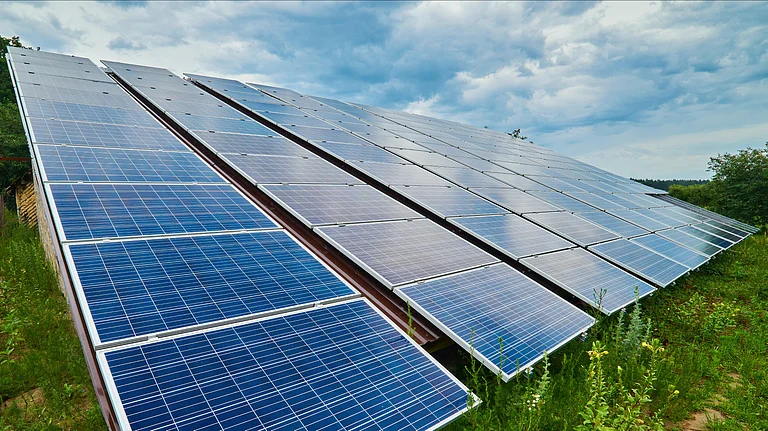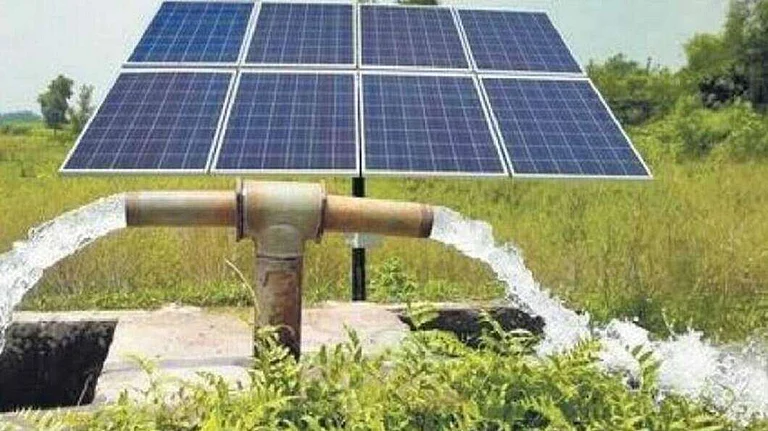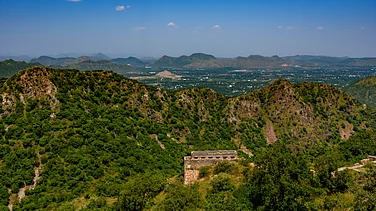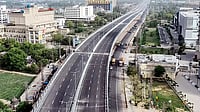
Avaada Group commissioned 11 solar power projects in Maharashtra’s Yavatmal district under Mukhyamantri Saur Krushi Vahini Yojana 2.0.
The projects, with capacities ranging from 2 MW to 5 MW, will provide daytime electricity for irrigation.
Nearly 14,900 farmers across 167 villages are expected to benefit through reliable irrigation, lower costs, and new income opportunities.
The scheme aims to solarise 30% of agricultural feeders with about 7,000 MW of decentralised projects.
Benefits include reduced subsidy burden on discoms, improved grid efficiency, and lower carbon emissions.
Diversified energy firm Avaada Group on Tuesday announced the commissioning of 11 solar power projects in Maharashtra’s Yavatmal district under the Mukhyamantri Saur Krushi Vahini Yojana 2.0 to provide reliable power for irrigation.
The projects include a 4 MW plant at Kinhi, 3 MW each at Baldi and Dongarkharda, 2 MW each at Bansi and Patan,a 5 MW at Mhasola, 2 MW at Galwa, 4 MW each at Pathrad and Parjana, and 3 MW each at Sawargaon and Sarfali, a company statement said.
Avaada Group has commissioned 11 solar power projects in Maharashtra’s Yavatmal district under the Mukhyamantri Saur Krushi Vahini Yojana (MSKVY) 2.0, a move aimed at providing farmers with reliable daytime power for irrigation and advancing the state’s clean energy transition, according to the statement.
The projects are expected to benefit nearly 14,900 farmers across 167 villages by improving irrigation facilities, reducing costs, and creating additional income opportunities, while ensuring a reliable supply of daytime electricity for irrigation pumps, thereby eliminating dependence on nighttime operations and reducing risks from accidents and wildlife encounters, it added.
Vineet Mittal, Chairman of Avaada Group, said in the statement, "The Mukhyamantri Saur Krushi Vahini Yojana 2.0 is a model for how clean energy can directly uplift rural communities.” The company is executing over 1,132 MW of solar power projects across key districts, including Nashik, Pune, Sangli, Yavatmal, Ahmednagar and Beed under the scheme. MSKVY 2.0, an upgraded version of the programme launched in 2017, seeks to solarise 30 per cent of agricultural feeders by developing around 7,000 MW of decentralised solar projects in the 0.5–25 MW range, located close to high-load substations.
The scheme promises multiple benefits.
Lower electricity bills and reduced fuel expenses from diesel generators translate into higher financial stability, while consistent power enables better crop planning and higher yields.
Farmers can also earn lease income by allowing solar projects on barren land. For the economy and administration, solar-based agriculture power lowers the subsidy burden on discoms and the state, reduces procurement costs, and improves grid efficiency by cutting transmission losses.
Local economies also benefit from investment in decentralised infrastructure. The scheme also supports Maharashtra’s climate commitments by displacing fossil fuel-based generation with clean solar power, thereby lowering the state’s carbon footprint.
Avaada said its work under MSKVY 2.0 is aligned with its broader commitment to renewable energy, spanning solar PV manufacturing, green hydrogen, energy storage, and data centres.
Avaada Group is a diversified clean energy conglomerate with businesses spanning solar PV manufacturing, renewable power generation, green hydrogen and derivatives, green data centres, battery storage, and pumped hydro projects.































